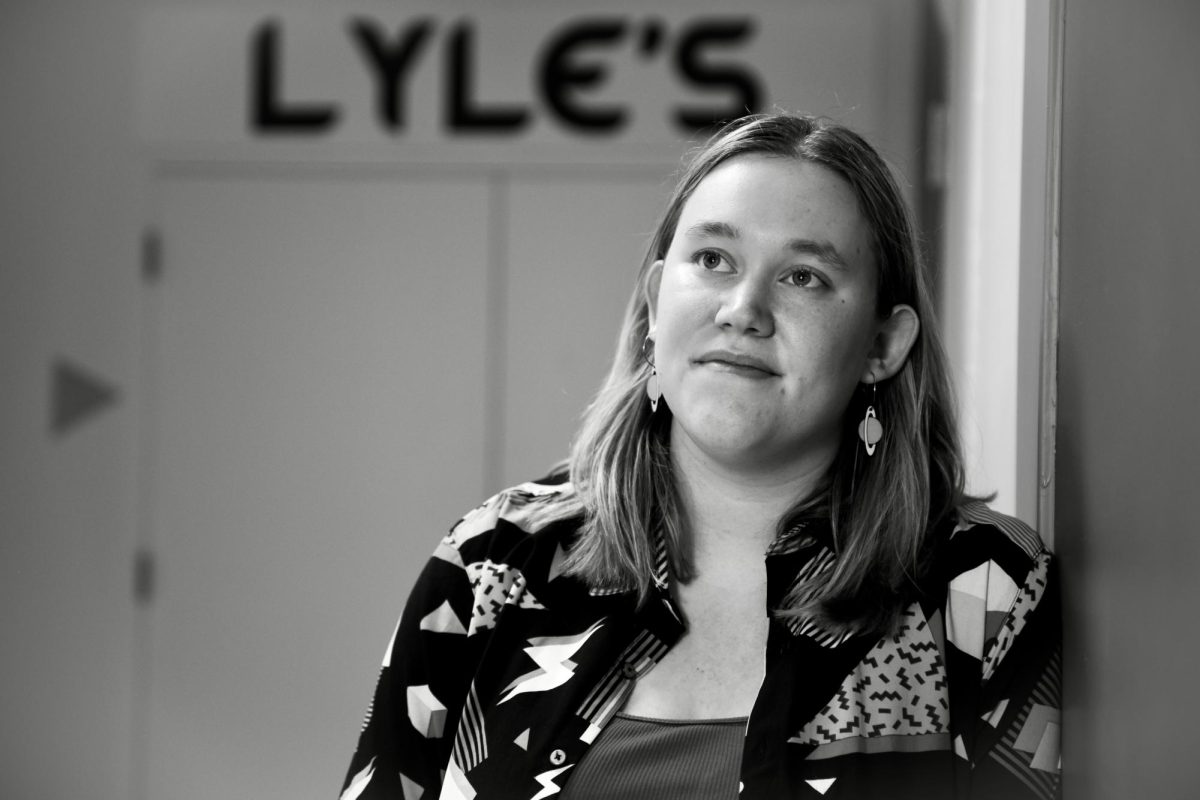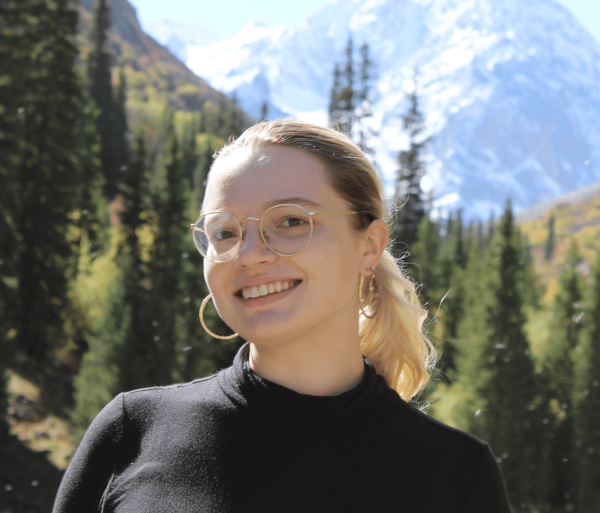This week, two members of our S&B staff, Editor-in-Chief Eva Hill ‘22 and News Editor Nina Baker ‘24, wrote a pair of op-eds in an attempt to answer a lingering question as we wrap up our first semester of in-person classes post-evacuation: what is Grinnell culture? This question, although seemingly short and perhaps subjective, has sparked many conversations between upper- and lowerclassmen concerning campus traditions and institutional memory. After a year of remote classes and the introduction of two new class years, often the answer to this question conflicts. Why would they not, given the chaotic and fragmented nature of the last year and a half? Since the writers are two class years apart, we wanted to highlight two of the many, many perspectives being expressed across campus, and display them side by side. In this way, we could begin to piece together the new, post-evacuation answer to our previous question, and perhaps modify our inquiry a bit: what is Grinnell culture in the era of the pandemic?
I am a second year at the College. Like many second years, the first time I entered Grinnell was a frigid Saturday with a mask and face shield. We were instructed by the College to quarantine separately until our first negative COVID-19 test result. Only after could we socialize. Rest assured we made the most of our time until we left eight weeks later.
Eight weeks isn’t a long time, but when students starved for friendship and desperate for an authentic first-year experience spend 23 hours a day in the same hallway, with the same people, they create institutional memory.
This is my Grinnell culture.
Some upperclassmen say that first- and second-year Grinnell students lack institutional memory. I reject that notion wholeheartedly. We have built — and are building — our own institutional memory. And it’s strong. It’s built on a bedrock of gratitude and pain.
I don’t want to give the impression that the loss from the pandemic is worse for second years than for others. It’s not. But if you understand our distress, then you may begin to understand why we are how we are, and why we do what we do. If we can bridge this gap that divides upperclassmen and underclassmen, we can cohesively build a new Grinnell culture with a stronger institutional memory than before.
To begin bridging this gap, I want to tell you my institutional memory.
Let’s start with the Milk Train.
The residents of the third and fourth floors of Norris Hall had just finished one of our bi-weekly Nerf wars. We used our face-shields as eye goggles to prevent injury, but the shields were itchy, and after two hours, we were sweaty and tired and desperate for a stalemate. A stalemate was offered on the condition that we join the third floors’ ominously-named Milk Train. We witnessed a bacchanal.
The first-year men’s track and field team joined the first-year men’s baseball team to run across the whole of campus (literally run) shirtless at midnight, chanting “Milk! Milk! Milk!” while jumping up and down to Darude Sandstorm with milk cartons in their hands. The festivities ended when one second-year student dumped a gallon of milk on his head. He didn’t realize the milk was rotten.
Several weeks later on March 13, 2020, we threw a COVID-19 birthday party. We decorated the hall with banners, bought COVID-19 stuffed animals and baked a cake. We sang Happy Birthday with a somber tone and shared memories of the day our high schools shut down, the day we learned we would begin our first year of college at home, and for some of us, the day we tested positive for COVID-19.
Now that I’m on campus, I’ve begun to acclimate to the culture that existed prior to the pandemic. But the differences between upperclassmen and underclassman are starker than ever. In my eyes, Grinnell culture isn’t Harrises. It’s Drinner. Grinnell culture isn’t Die. It’s Rage Cage. Nor is my Grinnell culture wrapped up in discussions of “self-government.” Truthfully, I haven’t spoken to a second-year who cares.
The third day I came to Grinnell, a residence life coordinator (RLC) punished my friends and I for doing a crossword three feet — instead of six feet — apart. Days later, 13 students in my residence hall were kicked off campus for being unmasked. But after that, RLC’s became overworked and supervision stopped. Each floor of then-first-years created their own self-governing society for themselves. It was beautiful. It also meant that we took out our own garbage and developed cabin fever. Now, I am just grateful for freedom and normalcy; the nuances of “self-government” are immaterial.
Regardless of how abnormal my time at Grinnell began, I am eternally grateful for the Class of 2024. Long before we stepped foot on campus, Grinnell Class of 2024 Discord organized an international Secret Santa. We became pen pals with others from across the United States. We celebrated birthdays virtually. We created inside jokes about Thomas the Tank Engine and Arson and Crabs. We cared deeply for each other, because connecting online was the only thing making us feel less alone. We still care deeply for each other.
This is my Grinnell culture.
Grinnell Culture is not dying. It is thriving. Even after all the stress from coursework, after all the disappointment from the administration, after all the pain of the pandemic, Grinnell culture is roaring under a swell of underclassmen who are forever grateful to finally, truly be here.
By Eva Hill
hilleva@grinnell.edu
I spent most of my first few semesters at Grinnell observing. Participating too, but mostly hanging back and watching, trying to figure out what to say or do. I’d come from a socially isolated grade-school experience, and I wasn’t sure I really knew how to make friends anymore. That was okay, though, or I thought so at the time. You learn a lot by watching from the corners of rooms.
My first impression of the culture here was a good one; students didn’t take themselves too seriously, I thought, but they were independent and curious and good at asking the right questions. Grinnell students cared about important things and talked about them in ways I’d never heard. It felt like a breath of fresh air after spending twelve years in one school system where social hierarchies that I didn’t understand and didn’t know how to enter dominated almost all aspects of the experience.
Looking back now, I won’t say that I was wrong in my initial assessment; Grinnell College is, despite all its flaws, an unusual, fascinating, and enriching place to learn, both academically speaking and in the more nebulous field of adult independence. You only have to talk to five or six people before you find someone with an interest you’ve never heard of or a skill that seems unreal for someone our age to have. There’s a shocking variety of clubs and advocacy groups and other student organizations, events to go to, meetings to attend; these micro-communities, I think, is what makes Grinnell student life what it is. They form the foundation for a network of social knowledge that makes our small campus into something alive and ever-changing.
I used to take walks around campus at night when I couldn’t focus on my work, listening to music, looking at the vignettes of brightly-lit windows with students studying or meeting or planning or partying inside. On weekdays it’d be clubs and study sessions and the occasional dorm party; on weekends, purple flashing lights and pulsing music and game nights and movie nights. Even at the times I felt the loneliest, seeing the buildings come alive at night reminded me that there were all these niches people had made for themselves; I just had to find mine.
That’s not to say I don’t have criticisms of the social culture here. As a group, Grinnell students’ fatal flaw is that we’re easily distracted. Because of the nature of Grinnell as a college, the people it attracts, it’s easy for the combination of interest in social causes and constant stress from work and school to manifest in our community as a serially monogamous focus on single issues for a week or less at a time. Not exactly ideal for actually getting anything done.
And plenty of students work hard to escape this trap — I’ve seen some amazing things achieved by Grinnell students in my time here; I’m not saying at all that every individual student has this problem. But take us as a group, look at the changing social temperature week-to-week or even day-to-day, and the one constant is that there is no constant. Tension climbs and boils over issues that everyone but the people most closely involved will forget about in a week or less. The most exciting things to argue about are the ones you’ve just learned about, because it’s more fun to fight about topics that haven’t yet had the time to develop into complex, nuanced issues. Maybe that’s just the nature of communities like ours; I don’t know. But as I think back on the strange, amorphous bundle of events, losses, and emotional spikes that have made up my time at Grinnell, I can’t help thinking — if this is what we can do as small clusters of people, what else are we capable of?


























































